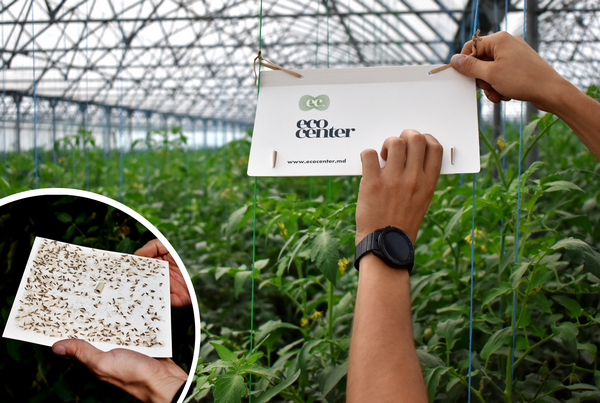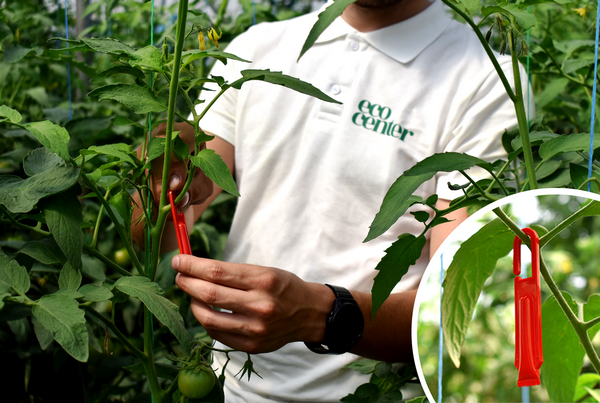Tuta absoluta is a pest found in many greenhouses around the world. “Due to the climate change and the movement of goods, Tuta absoluta can now be found in many parts of the world,” says Irina Caraeva from Eco Center. “Generally speaking, if you see mining on the leaves or the pests themselves – there might be a chance of an infestation.” And this can get quite nasty, not only because they inevitably weaken the plants but also because these get more susceptible to other pathogens.
The risk of using chemical products
Usually, a good practice to prevent that is to use insecticides, but they come with a downside. “The main issue has to do with the beneficial insects present in the greenhouse,” Irina points out. “Insecticides tend to affect those too, which is something growers definitely don’t want.” Another disadvantage of the use of insecticides to counter Tuta absoluta is the residue levels. “First of all, most of the insecticides are quite toxic, and residues can then be found on the produce. You can perhaps use them before the planting, but not during the entire growing season, it’s really not advisable. Additionally, Tuta absoluta develops resistance to most insecticides available on the market, even if there are products that can control the pest, they contain highly concentrated substances that cannot be used immediately before collection since the degradation period is too high.”
Pheromones
That is why Eco Center has devoted its efforts to developing solutions to control greenhouse pests in the most natural and environmentally friendly way. “Pheromones,” Irina points out. “These are species-specific, which means that they will affect only a given insect. In this way, a grower can be sure that beneficial insects don’t get harmed. At Eco Center, we have developed many pheromone products, with the most recent addition of the Tuta Protect – a mating disruption product.” The Eco Center also makes pheromone lures for monitoring tomato leaf miner to go together with their Delta Traps. “These are designed specifically to monitor the insect population in a cost-efficient and environmentally friendly way. They will help the growers to make decisions on further application of other pest management actions.”

Mating disruption
Irina continues to explain that before planting, a grower should start the monitoring process by installing a couple of Delta traps with pheromone lures. At the same time, if traps indicate the need for control of pests, Eco Center has come up with another solution. “Mating disruption,” she says. “These pheromone dispensers contain 170-180 milligrams of pheromone. Bluntly put, the mating disruption dispensers create “false pheromone trails” that affect Tuta absoluta males, which interferes with their mating finding behavior.”

Irina says that Eco Center is constantly working to include more insects in their pheromones catalog. “Right now, we are testing our products for the pink bollworm, which are mainly asked by our customers from the Middle East and Africa. At the same time, we are in the process of figuring out the best pheromone solution for the most common cannabis pests. Hopefully, we’ll get into that market soon,” she concludes.
For more information:
Eco Center
MD-2005, Moara Rosie 5E str.
Chisinau, Republic of Moldova
+373 68979696
[email protected]
ecocenter.md
